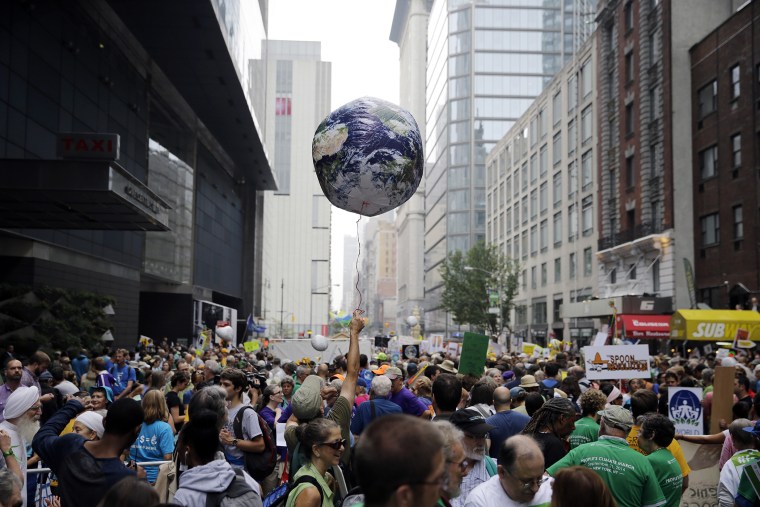About a month ago, the Associated Press asked Donald Trump about the climate crisis and his indifference toward the evidence. "My uncle was a great professor at MIT for many years," the president responded. "Dr. John Trump. And I didn't talk to him about this particular subject, but I have a natural instinct for science."
This "instinct" is not serving him -- or us -- especially well.
A couple of weeks after making the comment, Trump suggested he understands climate science better than climate scientists. Soon after, the Republican suggested cold weather in the United States' Northeast should be seen as evidence against global warming. (NASA created a website, written for children, explaining why such thinking is dangerously foolish.)
All of which served as a striking backdrop to the latest report from the Trump administration, which further made clear that the president has no idea what he's saying. The New York Times reported:
A major scientific report issued by 13 federal agencies on Friday presents the starkest warnings to date of the consequences of climate change for the United States, predicting that if significant steps are not taken to rein in global warming, the damage will knock as much as 10 percent off the size of the American economy by century's end.The report, which was mandated by Congress and made public by the White House, is notable not only for the precision of its calculations and bluntness of its conclusions, but also because its findings are directly at odds with President Trump's agenda of environmental deregulation, which he asserts will spur economic growth. [...][I]n direct language, the 1,656-page assessment lays out the devastating effects of a changing climate on the economy, health and environment, including record wildfires in California, crop failures in the Midwest and crumbling infrastructure in the South. Going forward, American exports and supply chains could be disrupted, agricultural yields could fall to 1980s levels by midcentury and fire season could spread to the Southeast, the report finds.
As NBC News' report added, the comprehensive document was originally scheduled to be released in December. But in classic Trump World fashion, officials instead put it out on Friday -- the day after Thanksgiving, when it would receive far less attention.
This was obviously not an accident. The release date was moved up because this is a report the White House doesn't want people to see -- in part because it paints a terrifying picture, in part because accepting the truth would necessitate bold action, and in part because it makes the president's position on the crisis indefensible. The Atlantic added:
Most significantly, the National Climate Assessment -- which is endorsed by NASA, NOAA, the Department of Defense, and 10 other federal scientific agencies -- contradicts nearly every position taken on the issue by President Donald Trump. Where the president has insisted that fighting global warming will harm the economy, the report responds: Climate change, if left unchecked, could eventually cost the economy hundreds of billions of dollars per year, and kill thousands of Americans to boot. Where the president has said that the climate will "probably" "change back," the report replies: Many consequences of climate change will last for millennia, and some (such as the extinction of plant and animal species) will be permanent.The report is a huge achievement for American science. It represents cumulative decades of work from more than 300 authors. Since 2015, scientists from across the U.S. government, state universities, and businesses have read thousands of studies, summarizing and collating them into this document.
The White House recently said it wants to look at the climate crisis "in a level headed and analytic way." Evidently, that means officials burying their heads in the sand, while burying the truth in a holiday-weekend news dump.
